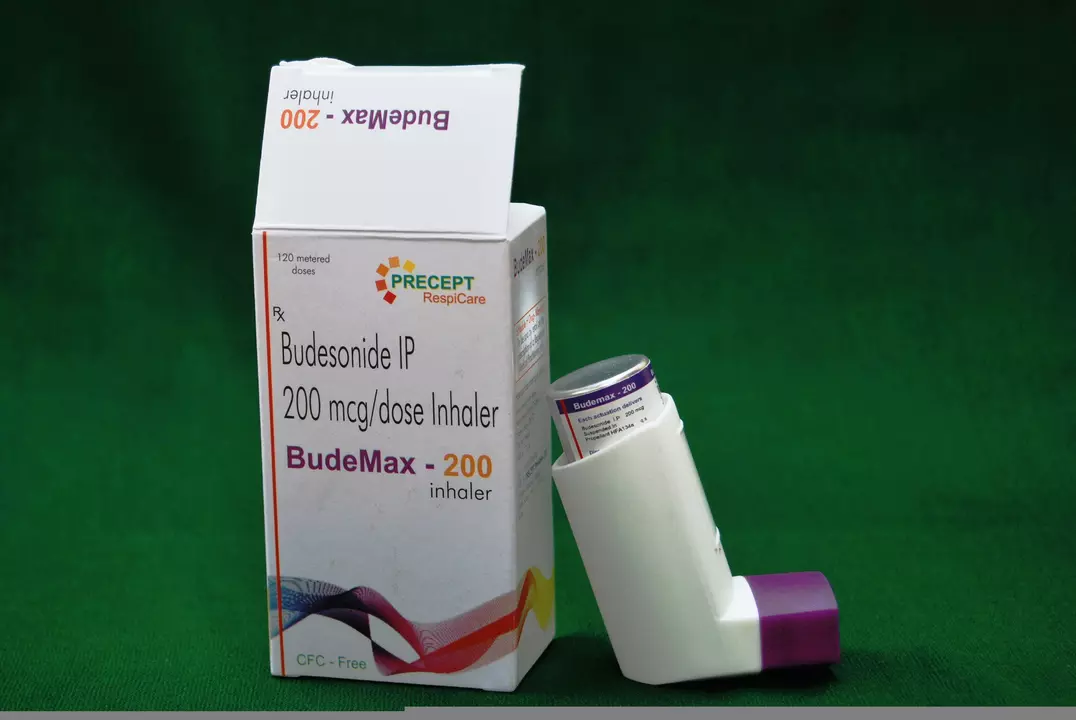Understanding Budesonide and Its Usage
Budesonide is a corticosteroid medication commonly used to treat various respiratory and inflammatory conditions in both children and adults. It is available in different forms, including inhalers, nasal sprays, and oral tablets or capsules. When used correctly, budesonide can be highly effective in managing symptoms of asthma, allergies, and other respiratory issues.
However, as with any medication, there are potential side effects and concerns associated with its use. One of the most significant concerns is the potential impact of budesonide on growth in children. In this article, we will explore this topic in depth, examining the research and evidence surrounding this issue to help parents and caregivers make informed decisions about their child's treatment.
How Corticosteroids Affect Growth in Children
Corticosteroids, including budesonide, are known to have potential growth-suppressing effects in children. This is because they can interfere with the normal production of growth hormone in the body, leading to slower or reduced growth over time. The extent of this effect can vary depending on factors such as the dosage, duration of treatment, and the individual child's sensitivity to the medication.
It is crucial to note that not all children who use corticosteroid medications will experience growth suppression. Some may continue to grow at a normal rate, while others may experience only minor, temporary reductions in growth. The risk of significant growth suppression is generally higher with long-term, high-dose corticosteroid use.
Research on Budesonide and Growth in Children
Several studies have investigated the impact of budesonide on growth in children. Many of these studies have focused on children with asthma, as this is one of the most common conditions for which budesonide is prescribed. Overall, the findings from these studies have been somewhat mixed, with some showing a clear link between budesonide use and reduced growth, while others have found no significant effect.
One possible explanation for these inconsistencies is differences in study design, such as the age of the participants, the duration of treatment, and the specific budesonide formulation used. Nevertheless, it is clear from the available research that there is at least some potential for budesonide to impact growth in children, particularly with long-term use or high doses.
Minimizing the Risk of Growth Suppression
If your child has been prescribed budesonide, it is essential to work closely with their healthcare provider to minimize the risk of growth suppression. This may involve regularly monitoring your child's growth, ensuring that the medication is being used correctly, and adjusting the dosage or treatment plan as needed.
Additionally, it is important to remember that the benefits of budesonide in managing your child's respiratory or inflammatory condition should be carefully weighed against the potential risks. In many cases, the improvement in symptoms and overall quality of life that can be achieved with budesonide may outweigh the potential impact on growth. However, this is a decision that should be made in close consultation with your child's healthcare team.
Alternatives to Budesonide for Children
If you are concerned about the potential impact of budesonide on your child's growth, it is essential to discuss these concerns with their healthcare provider. In some cases, alternative treatments may be available that can help manage your child's condition without the risk of growth suppression.
For example, inhaled corticosteroids with a lower systemic absorption, such as ciclesonide, may be less likely to impact growth. Additionally, non-steroidal medications, such as leukotriene receptor antagonists and long-acting bronchodilators, may be appropriate for certain children depending on the severity of their condition.
Ultimately, the decision to use budesonide or another treatment option should be based on a thorough evaluation of your child's individual needs and circumstances. By working closely with their healthcare team, you can ensure that your child receives the best possible care and support for their condition.





Shana Shapiro '19
It is truly heartbreaking to hear parents worry about their child's growth while seeking relief from asthma. Budesonide, when used responsibly, can calm the lungs and give children a chance to play without constant wheezing. Yet the specter of growth suppression looms, especially with high doses over many years. I understand the fear, and I urge families to keep a close eye on height charts, just as they monitor inhaler technique. Remember, many kids grow just fine under proper medical supervision.
Jillian Bell
What most articles hide is that the pharmaceutical industry has a vested interest in downplaying growth concerns. The so‑called “studies” are often funded by the very companies selling budesonide, skewing data to keep sales high. Think about the hidden chemicals in inhalers that silently alter endocrine pathways. It isn’t just about dosage; it’s about a systematic push to normalize steroid use in children. Parents deserve full transparency, not carefully crafted reassurance.
Lindsey Bollig
Hey folks, I’ve been working with pediatric asthma patients for years, and I’ve seen budesonide do wonders when dosed correctly. The key is the lowest effective dose and regular growth monitoring – your pediatrician can plot height percentile curves at each visit. If you ever notice a dip, discuss stepping down or switching to a lower‑systemic steroid like ciclesonide. Also, many families pair inhaled steroids with a daily vitamin D and calcium regimen to support bone health. Stay optimistic; the benefits often outweigh the manageable risks.
Daniel Buchanan
Every child’s journey is unique, so keep the conversation open with your doctor.
Lena Williams
I get why people feel uneasy after reading all the alarmist stuff floating around the internet.
The reality, though, is that pharmacology isn’t some secret cabal, it’s grounded in reproducible trials.
That said, the data on budesonide’s impact on growth does have gaps, especially in long‑term, real‑world settings.
Most of the big studies were short, about a year or two, and they often excluded kids with severe asthma who need higher doses.
When you look at the raw numbers, the average height loss is small – maybe a half‑centimeter in a year – but even that can feel huge to a worried parent.
What’s more, growth isn’t just about centimeters; it’s also about the timing of puberty, nutrition, and genetics.
If a child is already on the low‑end of their growth curve, a tiny dip might push them further behind.
On the flip side, untreated asthma can lead to poor sleep, reduced activity, and even chronic inflammation, all of which can stunt growth too.
So the trade‑off isn’t as black‑and‑white as some folks make it out to be.
From a practical standpoint, most pediatricians will schedule height and weight checks every three months while the child is on inhaled steroids.
If a downward trend appears, they might adjust the inhaler technique, add a spacer, or switch to a steroid with a lower systemic bioavailability.
Some families also experiment with a “step‑down” plan, using a low dose for a few months, then pausing to see if growth rebounds.
It’s worth noting that lifestyle factors – getting enough sleep, a balanced diet rich in calcium and vitamin D, and regular physical activity – can buffer any minor hormonal effects from the medication.
And don’t forget the psychosocial side: children who can breathe easy are more likely to engage in sports and social play, which boosts overall health.
In short, the risk exists, but it’s manageable with vigilant monitoring and a collaborative approach with your healthcare team. Keep the dialogue honest, ask for the raw data if you want, and remember that the goal is a healthy, active kid, not just a number on a growth chart.